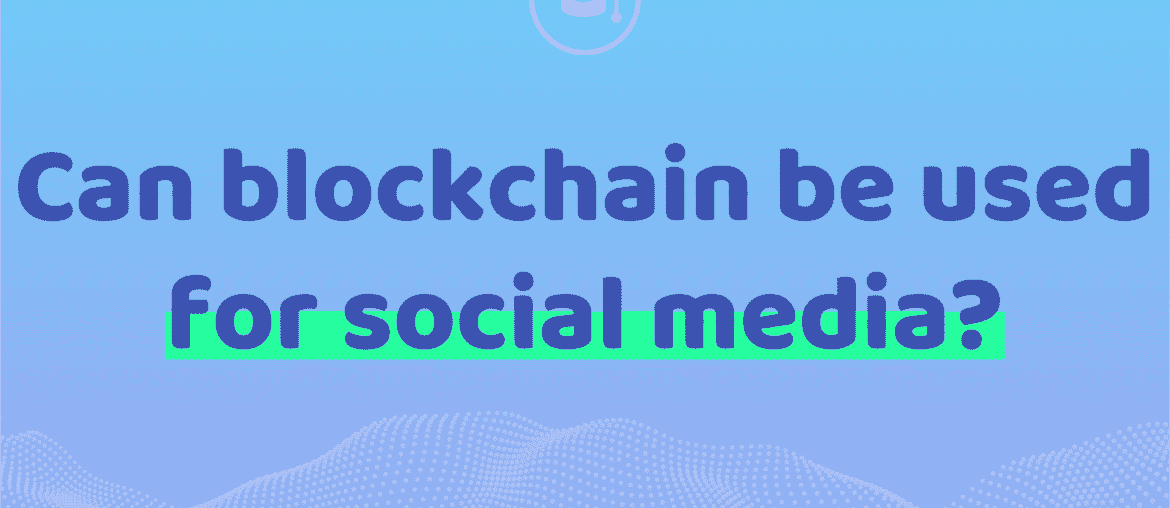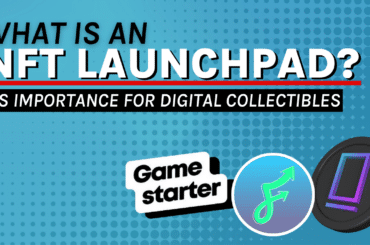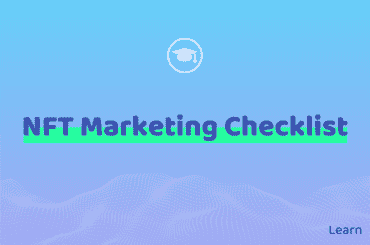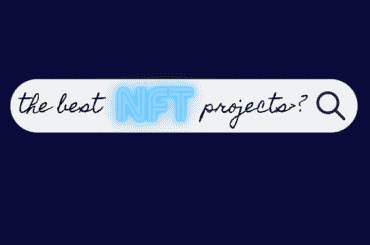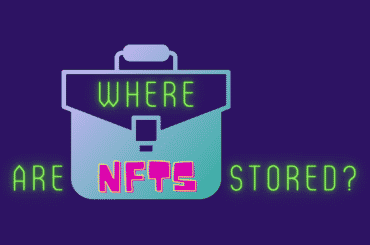We are living in the age of social media where everyone is plugged in and life is lived vicariously through other people’s posted pictures, tweeted topics, and social statuses.
Facebook, Twitter, Instagram, YouTube, and Snapchat are famous examples of social media platforms; they’re easy to use, accessible, and free. But in addition to lots of benefits, there are also some drawbacks: it’s impossible to control the spread of fake news and harmful content.
In recent years, the use of blockchain in social media has become quite popular. Social networks created using blockchain technology allow users to communicate without relying on a central authority. This trend is called decentralized social media.
Table of Contents
Concerns With Traditional Social Media Platforms
Social media is already the backbone of our day-to-day lives, but recent revelations about data harvesting have made users uneasy about the platform’s business practices. With Facebook, for example, you’re never quite sure if your personal data will be used against you. Without stronger regulations to protect user privacy, consumers are in danger of becoming less concerned about protecting their own “private” information.
It is common knowledge that centralized social media platforms track user activities and store all user data for marketing purposes. Moreover, most of them also are strongly thought to exploit and sell this data, although they deny doing so.
The problem is, that the user policies of these networks lay it out that once the user registers on the site, they are authorized to store any and all data that crosses their site. Therefore, there is nothing we can do without strong regulation.
Blockchain social media is the solution to the monopolistic habits of today’s most popular social networking sites. While you may not be able to get rid of your Facebook or Instagram, blockchain social media allows users to take control of their data, creating a system where everyone can benefit from improved sharing and engagement.
What is Decentralized Social Media?
All blockchain social media networks fall under the umbrella of decentralized social networks. Decentralized social networks operate on independently run servers, rather than on a centralized server owned by a business. What really makes blockchain revolutionary is the way it allows us to create trust in a network without requiring a centralized authority. It’s important to understand the difference between decentralized and distributed systems; in a distributed system, there will always be a designated point of control (a server) — the question is whether that server is operated by an independent party or by someone else.
The decentralized social media platforms of today cannot compare to Facebook or Twitter. Now, with cryptocurrencies gaining in popularity and blockchain technology spreading out over the world, a new form of social media seems inevitable. It’s not just about financial transactions — permissionless blockchains make it possible for users to interact with each other and share information securely. This creates an interconnected network that’s able to rival existing centralized social media platforms.
Decentralized social networks are built using decentralized technology, which means profiles and personal data will be stored on a network of nodes across the globe. This means that no one government or business can shut down a decentralized social network — not without shutting down the internet itself.
Blockchain technology allows for an entirely new approach to rewarding users for their time and attention.
Pros And Cons Of Decentralized Platforms
Advantages:
– Unethical usage of users’ data can be prevented with Decentralized networks.
-Blockchain technology uses cryptography to protect the interactions between users, which results in data security and privacy.
-No central authority so the usage of data is controlled by users.
-Crypto can assist in crowdfunding and provides traction for the future.
-Content moderation of centralized social media makes it difficult to keep up with changing community guidelines and content quality standards. Blockchain-based social media creates a more efficient way to moderate content and make sure that both users and brands are happy.
Currently, the trend is towards decentralization, which would hopefully eliminate censorship issues by utilizing the open-source nature and improve content moderation for all allowing content sharing with private servers to be more efficient.
-Interactions are protected using cryptography, resulting in greater privacy and security of data.
Disadvantages:
-The problem with decentralized platforms is that they don’t have the network effects required to attract users. Customers join a social network because of how seamless they are, not because they’re decentralized or open-sourced — and while it’s true that today’s existing social networks were developed over years of daily feedback from millions of users, it’s likely the same will happen with new ones.
-Decentralized networks, just like the Internet before it, allow for the existence of a network without centralized control. Because there are no points of control or failure in a decentralized system, there is greater tolerance for user errors. Decentralized systems can also offer more privacy by hiding ‘behind’ anonymous public-key cryptography — but managing these keys is difficult, and building software that is both cryptographically secure and easy to use is challenging.
-New platforms and applications aren’t being built that is able to handle the load of both consumer and business use. Changes in social media platforms have altered the way we share, consume and authenticate information. The new hierarchical, centralized platforms lose a lot of creative freedom, and consumers are forced to choose between a large, but commercial social network and a smaller, niche-oriented platform.
-In the event of a network shut down, all data will be lost.
-A decentralized social media platform will still be prone to 51% attacks.
How Blockchain Contributes to Social Media Networks
Centralized social media platforms endanger user privacy. Even Facebook — the world’s most popular social media platform — has been rocked by a series of data leaks, hacks, and other privacy controversies. In addition to these problems, centralized social media platforms also lack many things: they’re not built on open source code, they don’t have regulations to prevent abusive conduct, and they’re financially inefficient, making it difficult for users to receive rewards for their contributions.
The concepts below are required to create a better social media network.
Open-source code:
Data and code are both forms of currency in the modern world — why sell one to another party when they are each so valuable? By combining the two in blockchain technology, we can keep an open-source code, which will have the additional bonus of being able to inspect the data algorithms.
Decentralized control:
Blockchain protocols make decentralization easy to achieve. This provides users with a transparent system and helps them avoid centralization.
Blockchain technology also empowers users by giving them full control over their data and no possibility to be exposed to third parties. This can ensure that there will be no chance for any third party to access your private data. Therefore, it can help you stay away from centralization.
Democratic decision:
Everyone should be involved with every aspect of every social media network. This is democracy. If we could create a network structure that allows everyone to be involved, then the world would be a much better place. We don’t want to live in a world with different versions of Twitter and Facebook — we all want one place where everyone is heard and everyone has a say.
Explainable AI:
Blockchain and social media networks, AI startups are attracted to this idea. Blockchain can help businesses implement explainable AI – a model that can explain the reasons behind every judgment or decision made by an algorithm, which is especially important because the accuracy of AI is still far from 100%.
It allows developers to create algorithms with explainable reasoning, which means that the system’s power is not necessarily in its accuracy, but in its transparency and diversity.
Blockchain Social Media Platforms
Blockchain technology is beginning to be applied to social media platforms as a way of ensuring user-generated content isn’t censored by the company. The blockchain’s distributed ledger technology is immutable and transparent, giving users control over their own data and privacy.
Society2 on IOTA
Society2, a new social media site built on the IOTA blockchain and its IOTA Streams technology, will launch soon. Using blockchain technology, users will have more control over their data and privacy and the ability to earn free IOTA tokens by watching ads. Developers can also use Society2 to create new platforms.
Society2 unveiled its goals, stating that it aims to be one of the first decentralized social media networks with broad appeal. The development team hopes to create an early prototype by Q3 2020, although no firm release date for the platform has been set.
Peepeth
Peepeth is a microblogging platform on a decentralized social media network. It’s a Twitter clone, but don’t be fooled by its appearance. Peepeth’s monetization approach, mission, and backend technology are worlds apart from previous “free” services. It’s taking something you’ve gotten accustomed to and know how to use – and making it available to the rest of the world.
Peepeth is based on the Ethereum network, and like all dApps, it takes a modest amount of Ether to participate. That is, it is not “free” and does not conceal expenses from users. Using Peepeth costs the equivalent of a few American cents for an entire day of everyday interactions.
This platform, created by Bevan Barton, was released on March 27, 2018. Peepeth is an open-source smart contract with a frontend that can be accessed at Peepeth.com.
Some of the critical features of Peepeth include:
- Transparent
- Can hide user identity
- All the posts are stored on the blockchain
- Interaction with contracts for decentralization
Sapien
Sapien is a social news platform based on the Ethereum blockchain. It’s incredibly adaptable and democratic. Web3, a social network that compensates content creators and puts consumers back in control of their data, combats fake news. Sapien is a social news platform based on the Ethereum blockchain. It’s incredibly adaptable and democratic. Web3, a social network that compensates content creators and puts consumers back in control of their data, combats fake news.
Users can stake SPN tokens in Sapien’s engine and get tokenized rewards for making comments, voting on posts, and generating content. On this decentralized social network, users have complete control over their time and data.
Steemit
Steemit is a platform for user-generated content and community building that blends blockchain technology, social media, and cryptocurrency. The social community creates and curates content in exchange for 50 percent Steem Power and 50 percent Steem Dollars. It is one of the most prominent blockchain social networks of all time, and it was founded on the Steem blockchain. Steemit is a platform for user-generated content and community building that blends blockchain technology, social media, and cryptocurrency. The platform features elements that are similar to Facebook and Reddit in terms of functionality.
Based on involvement and ‘upvotes’ on content, the Steem system automatically distributes Smart Media Tokens to the producer (SMT). Users on this platform have earned over $59 million for their material, according to Steem Stats. Furthermore, the Steemit whitepaper predicted a whopping 6 million transactions per second, far higher than Bitcoin and Ethereum’s current TPS. Writers and content providers who wish to monetize their work should use Steemit. In February 2020, Tron purchased Steemit.
Diaspora
Diaspora is a distributed social network that users for users run. It comprises a collection of self-contained nodes (known as pods) that build a network. Because a single person or company does not own a social network, it is immune to corporate takeovers and advertising. “Our distributed design guarantees no big corporation will ever control Diaspora,” the project’s creator claims.
Diaspora is a distributed social network that users for users run. It comprises a collection of self-contained nodes (known as pods) that build a network. Because a single person or company does not own a social network, it is immune to corporate takeovers and advertising. “Our distributed design guarantees no big corporation will ever control Diaspora,” the project’s creator claims. Furthermore, individuals of the Diaspora’s “community,” as they refer to it, can follow hashtags in the same way on regular social media sites.
Diaspora is built on three critical factors in terms of functionality and structure.
Decentralized Network:
The Diaspora network is based on dispersed servers that are owned and operated separately. It guarantees that the system is entirely decentralized, with no data being held on a single server.
Liberty to Hide Identity:
Users do not need to divulge their genuine identity to participate in the Diaspora community. The user might also choose to reveal personal information such as their phone number. Apart from being free to use, the software gives users complete control over how they connect.
Security and Privacy:
A unique Diaspora feature called ‘Aspect’ allows users to have complete control over their data and distribute it at their choice. Furthermore, users do not sign off their data rights, either to Diaspora or to any other third party, when they sign up for the community.
Conclusion
While decentralized social media platforms have a ways to go before they can compete with the likes of Facebook, Snapchat, and Twitter, they are setting themselves up for future industry domination. Many people are attracted to the freedom, security, and opportunities that decentralized social media sites offer.
Because users don’t need to rely on a centralized third party to share content and data, they aren’t beholden to the greed of corporations — instead, they are free to earn rewards and engage in micro-transactions.
Decentralized social media is definitely evolving and will occupy a large part of the future of social media.

